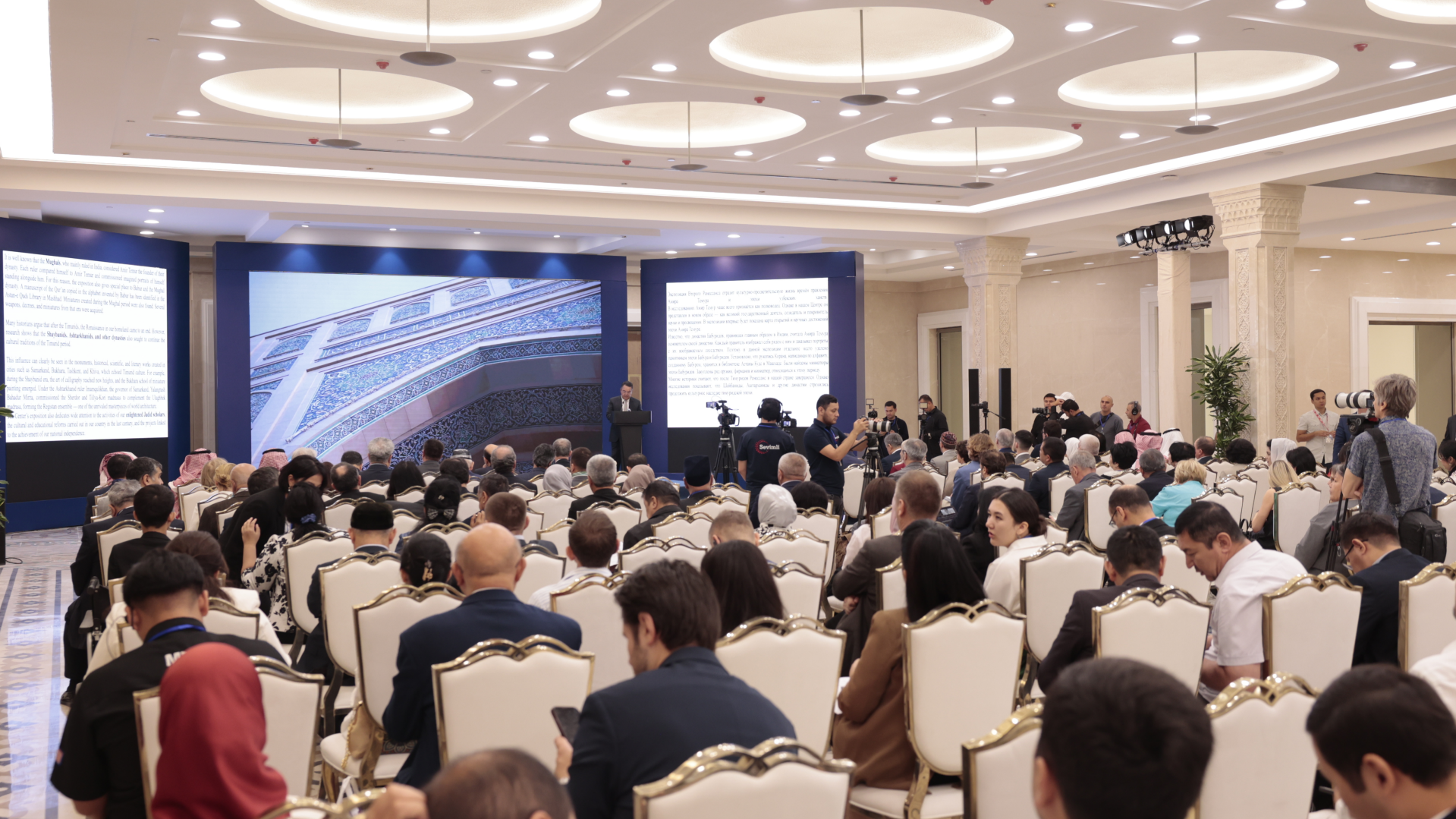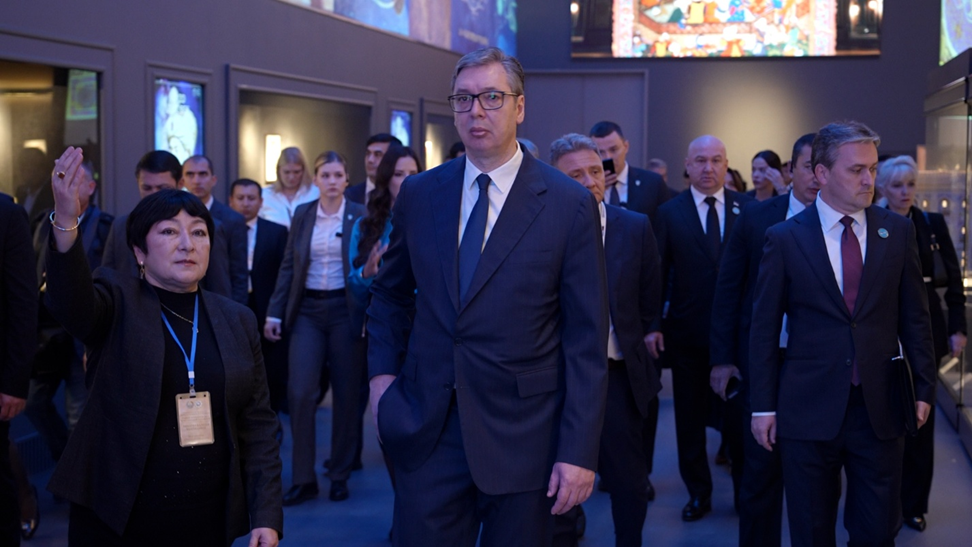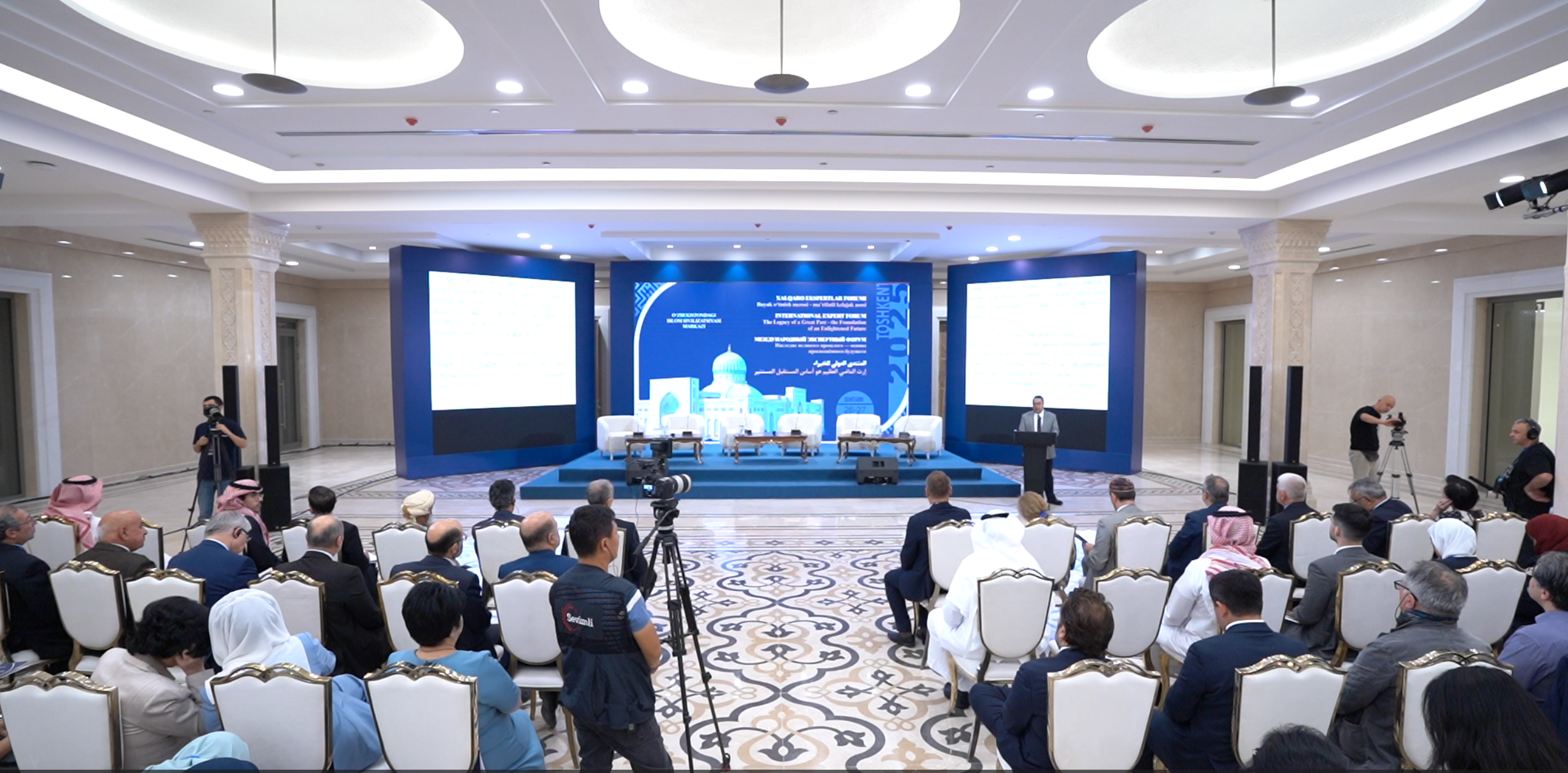The “114 Qur’ans” project is in its final stage: the exposition will present history and civilization through the illuminated pages
🔴 A book-album based on 114 Qur’anic manuscript copies
🔴 A Qur’an manuscript with a 700-year history

The Center of Islamic Civilization in Uzbekistan is implementing the “114 Qur’ans” project in collaboration with prominent experts from France, Turkey, and Austria. Within the framework of the project, Qur’anic manuscripts from around the world specifically those connected to Uzbekistan’s historical heritage are being selected, and a special Qur’an Hall will be featured as a central part of the museum’s exposition.
Today, on the occasion of the project reaching its final stage, Turkish scholar and Istanbul University professor Emek Uşenmez delivered a presentation at the Center of Islamic Civilization.

The event was attended by Uzbekistan’s distinguished Islamic scholars and experts, including Shaykh Abdulaziz Mansur, First deputy chairman of the Muslim board of Uzbekistan Homidbek Ishmatbekov, the Center’s Academic secretary Rustam Jabborov, researcher Azimjon Gafurov, and several other scholars and researchers.
According to Professor Emek Uşenmez of Istanbul University, a book-album based on 114 Qur’anic manuscript copies is being prepared in collaboration with the Center. He noted that the book-album will consist of an “Introduction” and four main sections, presenting historical and scholarly information about rare Qur’anic manuscripts created in the Turkestan region from the 7th to the 20th centuries and currently preserved in archives around the world.
Among the renowned manuscripts featured in the book-album are the Uthman Mushaf, the Great Langar Qur’an, the Blue Qur’an, and manuscripts from the eras of the Samanids, Qarakhanids, Ghaznavids, Seljuks, Khwarazmshahs, Timurids, Mughals, and the Uzbek khanates. Each manuscript will be represented by two facsimile (exact reproduction) pages, collectively covering all 30 juz’ (sections) and forming a complete visual representation of the Qur’an.
One of the key highlights mentioned by Professor Emek Uşenmez is the inclusion in the album of a Qur’anic manuscript copied by hand in 1467 by Shodmalik Khatun, daughter of Muhammad Sultan, the grandson of Amir Temur. The album will also feature historical details about a manuscript presented as a gift by Kokand Khan Amir Umar Khan to Ottoman Sultan Mahmud II.
One of the most remarkable parts of the collection is the inclusion of selected surahs from a Qur’anic manuscript written on gold leaf in 1318 and dedicated to Uzbek Khan of the Golden Horde. This manuscript, with a 700-year history, is considered one of the most significant Qur’anic codices preserved after the Mongol period.
At the conclusion of his presentation, Professor Emek Uşenmez emphasized the historical, philological, and cultural value of these rare manuscripts and underlined that their origins are deeply intertwined with the history of Uzbekistan.
Most read

Over 100 experts from more than 20 countries of the world are in Tashkent!

President of Serbia Aleksandar Vučić visited the Islamic Civilization Center in Uzbekistan

The Center for Islamic Civilization – a global platform leading towards enlightenment











